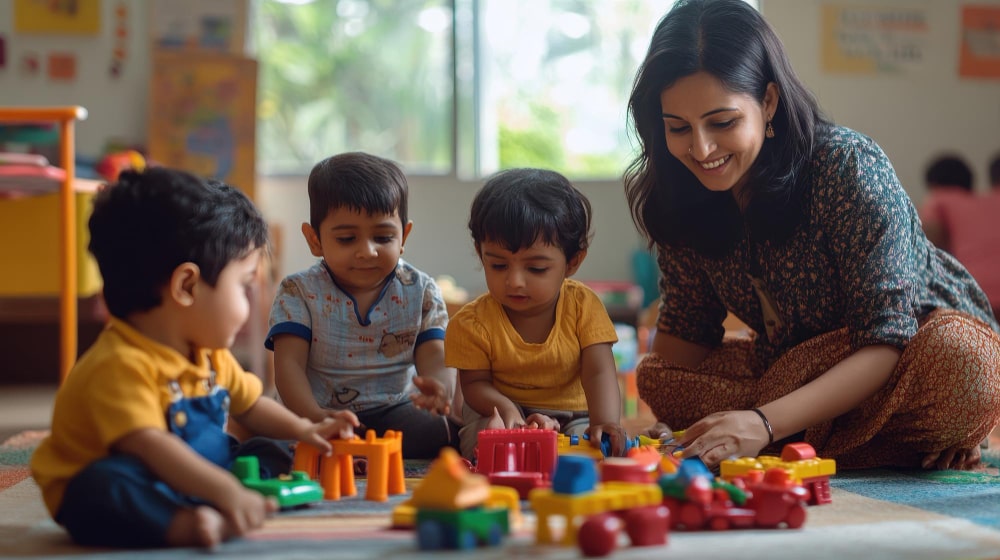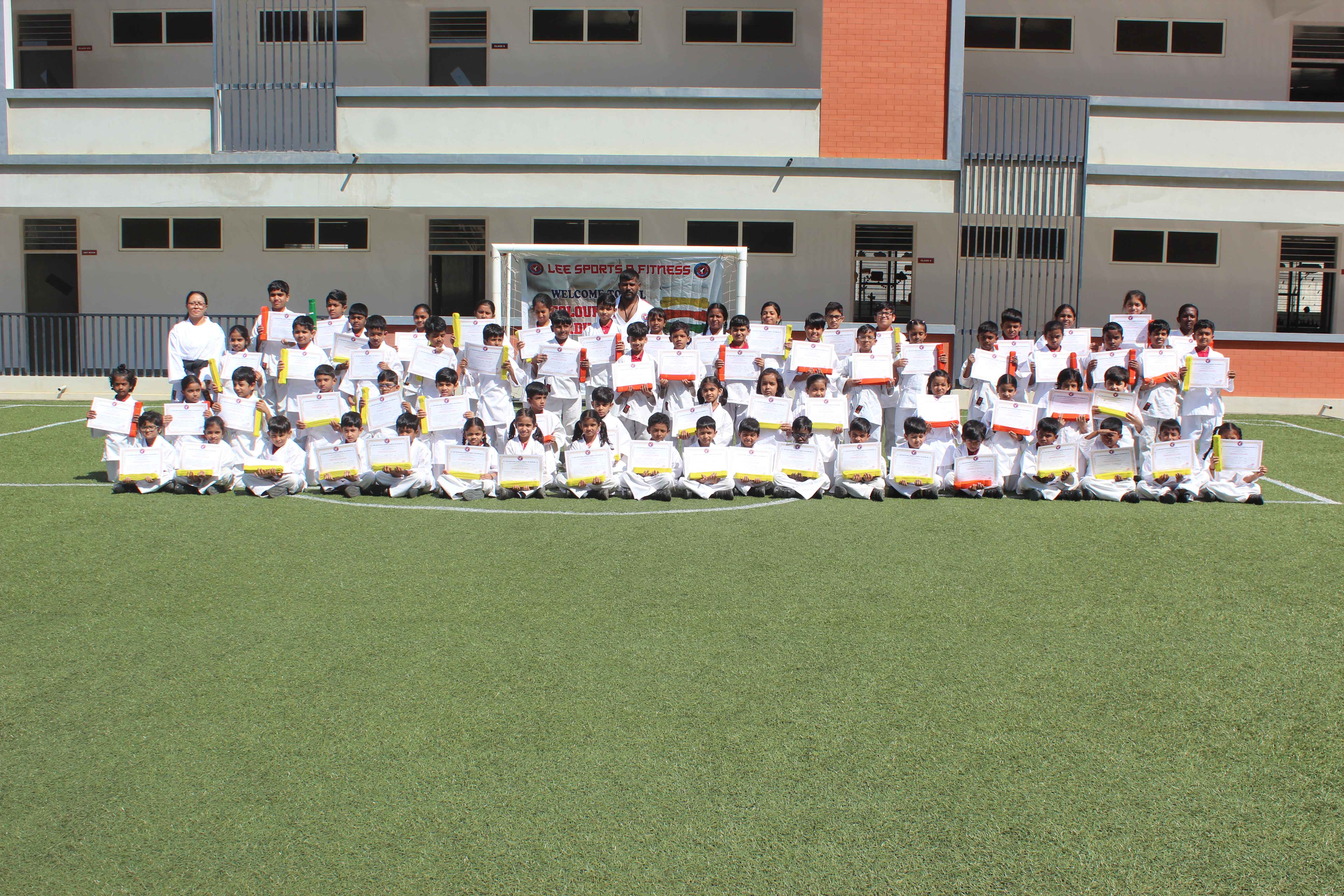Early childhood is a critical period for brain development, laying the foundation for a child’s cognitive, social, and emotional skills. The scientific community agrees that the experiences a child is exposed to during the first few years of life can have long-lasting effects on brain architecture and future capabilities. From synaptic formation to cognitive flexibility, early childhood education (ECE) is crucial in profoundly shaping a child’s brain.
Building Brain Architecture
The brain develops at an extraordinary rate in early childhood, forming over a million new neural connections every second.
As per the research by Harvard Child Development, this rapid proliferation of connections happens in a specific sequence: sensory pathways for basic functions such as vision and hearing develop first, followed by early language skills and higher cognitive functions.
The Science Daily says that genetics and environmental experiences shape these processes, particularly the quality of interactions and learning opportunities a child receives.
One of the fundamental concepts in early brain development is the “serve and return” interaction between a child and their caregiver. The caregiver includes parents and teachers. Schools with pleasant atmospheres and trained teachers can broadly impact their thinking and social abilities.
Harvard Child Development observes that when these interactions are absent or inadequate, the brain’s architecture can suffer, leading to potential gaps in learning and behaviour later in life.
The Role of Experience in Brain Development
While genes provide the basic blueprint for brain development, experiences in the early years, including school education, significantly influence how this blueprint unfolds. According to neuroscientist Dr Suzana Herculano-Houze, genes determine the brain’s initial structure and connections; however, the environment shapes the neural circuits that are strengthened and retained over time.
Positive early experiences—such as a nurturing environment, stimulating educational activities, and healthy social interactions—enable the brain to develop more efficiently.
Early childhood education programs like Playschool, Montessori, or Kindergarten improve children’s cognitive functioning and emotional stability as they are continuously exposed to structured environments that stimulate learning, social interaction, and emotional development. These programs offer activities that enhance problem-solving skills, language acquisition, and critical thinking by engaging children in hands-on learning and exploration. Additionally, these environments’ routines and their collaborative nature help children develop emotional stability by promoting self-regulation, empathy, and resilience through positive peer interactions and teacher guidance.
Cognitive Flexibility and Early Learning
Another significant aspect of early childhood brain development is cognitive plasticity, or the brain’s ability to adapt and reorganise itself. The brain is incredibly flexible during early childhood, rapidly absorbing and integrating new information. This plasticity is why children can learn languages, problem-solving skills, and social behaviours relatively easily during their early years.
Schools with strong sensory learning programs like CMR Gandhi Public Schools’ Montessori capitalise on this cognitive flexibility by incorporating hands-on activities that engage multiple senses. We encourage exploration, discovery, and self-paced learning by integrating sensory-rich experiences like tactile learning, visual stimuli, and auditory exercises, which allow children to absorb academic knowledge and refine their fine motor skills, emotional regulation, and interpersonal abilities.
The environment at CMR GPS promotes cognitive flexibility, as children are constantly exposed to new challenges and stimuli, encouraging their brains to adapt and grow in response.
The Long-term Impact of Early Childhood Education
The advantages of early childhood education go beyond the early years. Studies show that the thinking, feelings, and social abilities developed in early childhood are strongly linked to success in school, work, and overall life happiness. Children who receive high-quality early education are more likely to develop better language skills, show higher levels of self-control, and demonstrate greater resilience in the face of challenges.
A notable study published in the Journal of Cognitive Neuroscience found that early cognitive experiences can have a lasting impact on adult brain structure. This underscores the idea that investing in early childhood education is not just about immediate gains; it’s about shaping the brain in ways that foster long-term development and success.
Conclusion
We at CMR Gandhi Public School, one of the best CBSE schools in Bengaluru, understand that the first few years of a child’s life are essential for brain development. Positive and negative experiences during this time can have long-lasting effects. Providing children with caring, stimulating environments and making sure they have access to high-quality education can help shape their brains in ways that support learning, emotional well-being, and social skills throughout their lives. Research shows that investing in early education is one of the best ways to support healthy development and future success.










